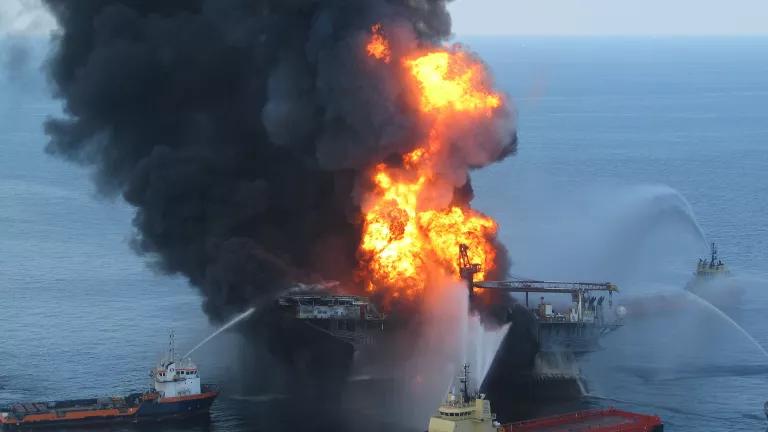A Safety Net for Ocean Fisheries: The Case for Stronger Protection of Essential Fish Habitat Under the Magnuson-Stevens Act

The Magnuson-Stevens Act—the nation’s primary fisheries law—has played a critical role in curbing overfishing and rebuilding dozens of once-depleted fish stocks. This law also recognizes the importance of protecting important fish habitat—the underwater refuges, feeding and spawning areas, and nurseries that fish need to survive—from the impacts of both harmful fishing gear, such as bottom trawling, and non-fishing activity, such as dredging and energy development. Particularly as our oceans warm, acidify, and undergo rapid transformations, habitat protection is a critical tool for ensuring healthy and resilient fisheries and marine ecosystems.
NRDC conducted a detailed review, including geospatial analysis and mapping, of how each of the eight federal regional management councils (councils) have implemented the Magnuson-Stevens Act’s requirement to designate and minimize harms from fishing to “essential fish habitat” or EFH. We found that councils have generally not used the law’s habitat protection requirements to significantly reduce commercial fishing’s ongoing adverse effects on fish habitat and marine ecosystems. In some cases, councils have simply protected very little habitat, including particularly important or vulnerable habitat, from bottom trawls, the fishing gear most widely recognized as causing harm. In other cases, councils have primarily closed very large, generally deep-sea, areas to potential future bottom trawling, protection that provides important but limited benefits. We also found that the councils have protected virtually no habitat from all commercial fishing gear or all fishing impacts using the EFH requirement, the strongest level of EFH protection.
It is more important now than ever that we utilize the EFH designation to better protect marine habitats and help build fisheries and overall marine ecosystem resilience. Better mitigating the adverse impacts of fishing on habitat will help our fisheries survive the climate change-related disruptions now underway in our oceans.





